Idea by
Margarida de Almeida Matos
Call for ideas 2020
Vague Utopie
Vague Utopie
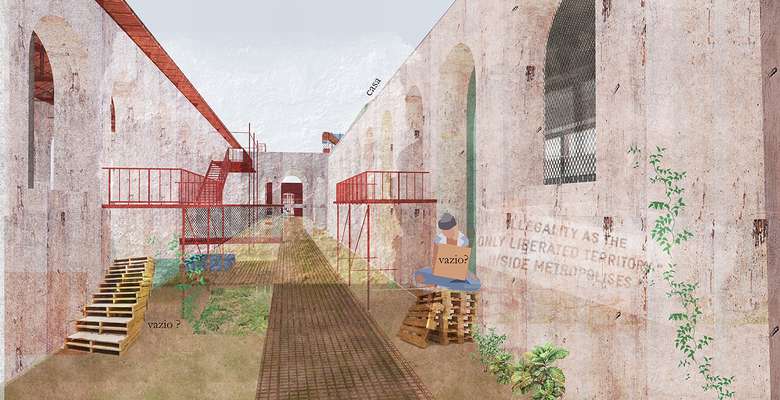
- Systemic changes
The land that remains from urban change - terrain vague- is an organically rich, indefinite territory, part of natural water drainage and air systems. Symbols of resistance and regeneration, urban voids connect different times - organic life cycles, city transformation and ruins, time’s physical expression.
In a context of urban regeneration of Lisbon’s Eastern part, given the momentary lack of affordable housing in the city and contemporary nomadic lifestyles with no architectural translation, an alternative dwelling experiment is proposed – hybrid temporary places for homeless, students, travelling artists, migrants, or other kinds of temporary situations which require social integration – conceptualized in one abandoned factory in ruins and its empty surroundings. An experimentation with time that will last until the natural flow creates a need of space for something else. Transience of urban empty places opens infinite possibilities of experimentation on building the city itself.
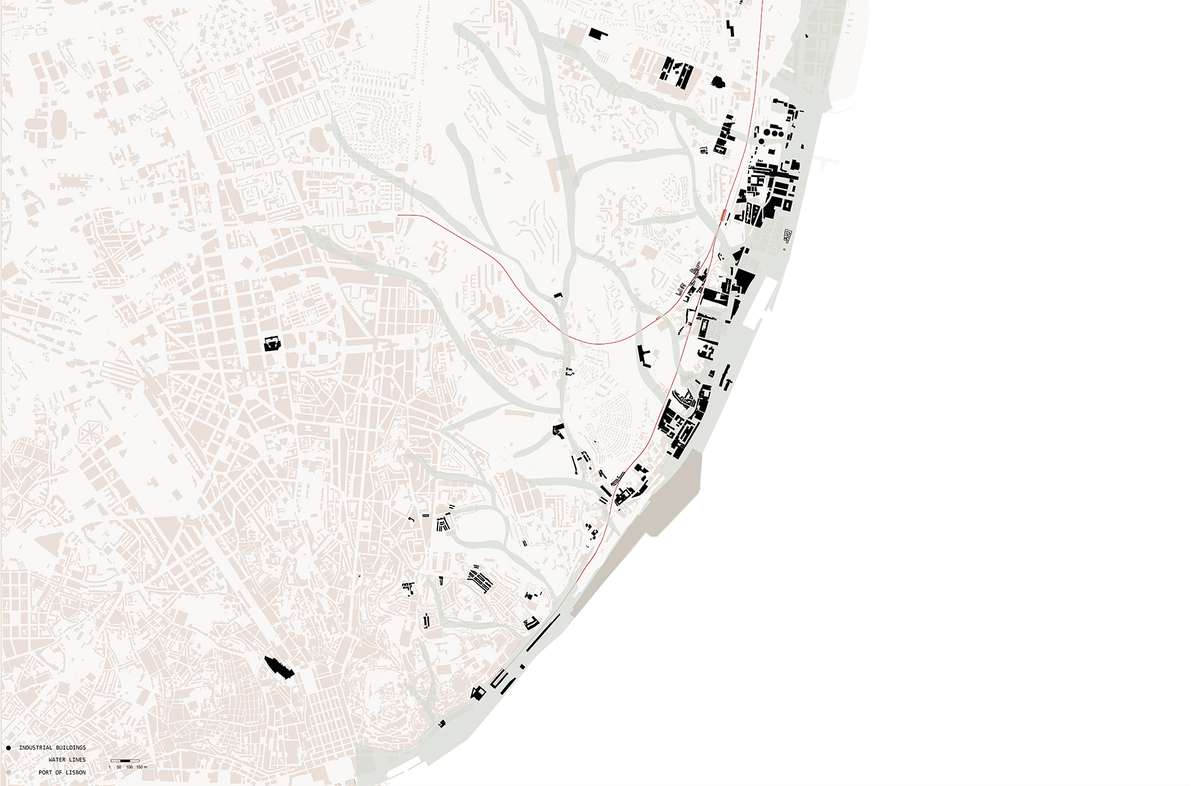
Mapping the relation between water drainage lines and industrial heritage in Lisbon – post-industrial abandonment left beautiful empty buildings and often created spaces of natural/built conflict.
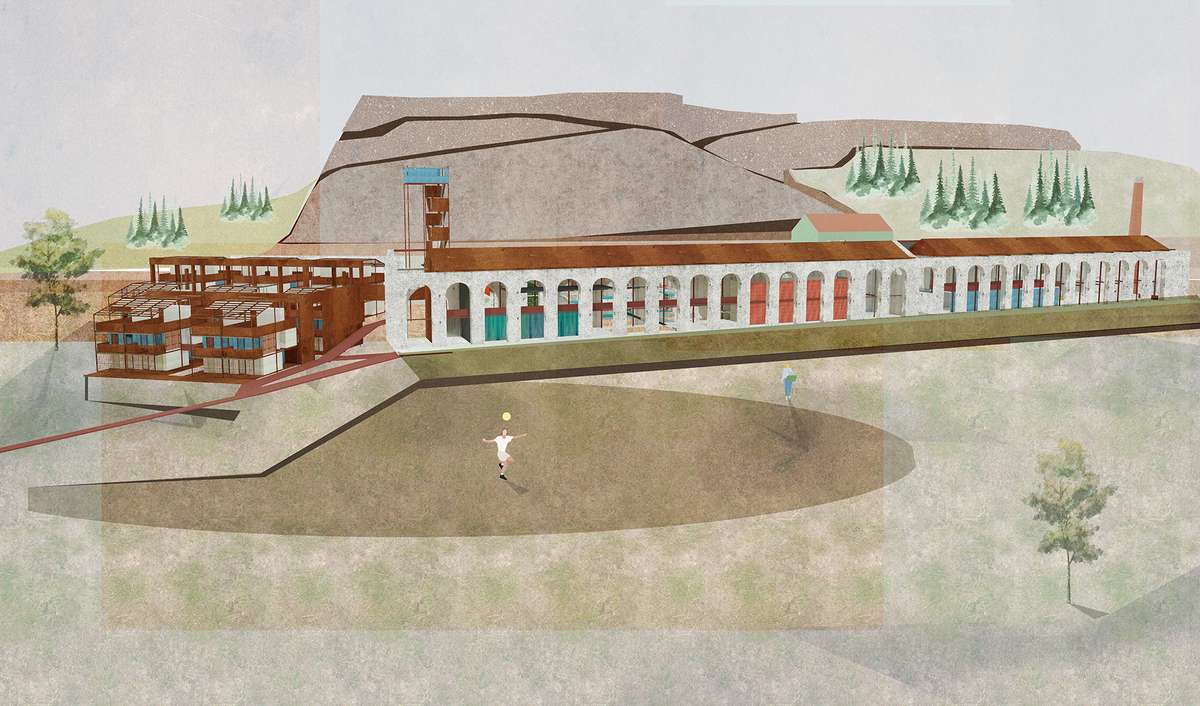
An utopian ideal of universal balance – acting upon the ruins without altering them, building something you can unbuild, leaving room for nature to grow by itself – sets the premises to intervene on empty urban land.
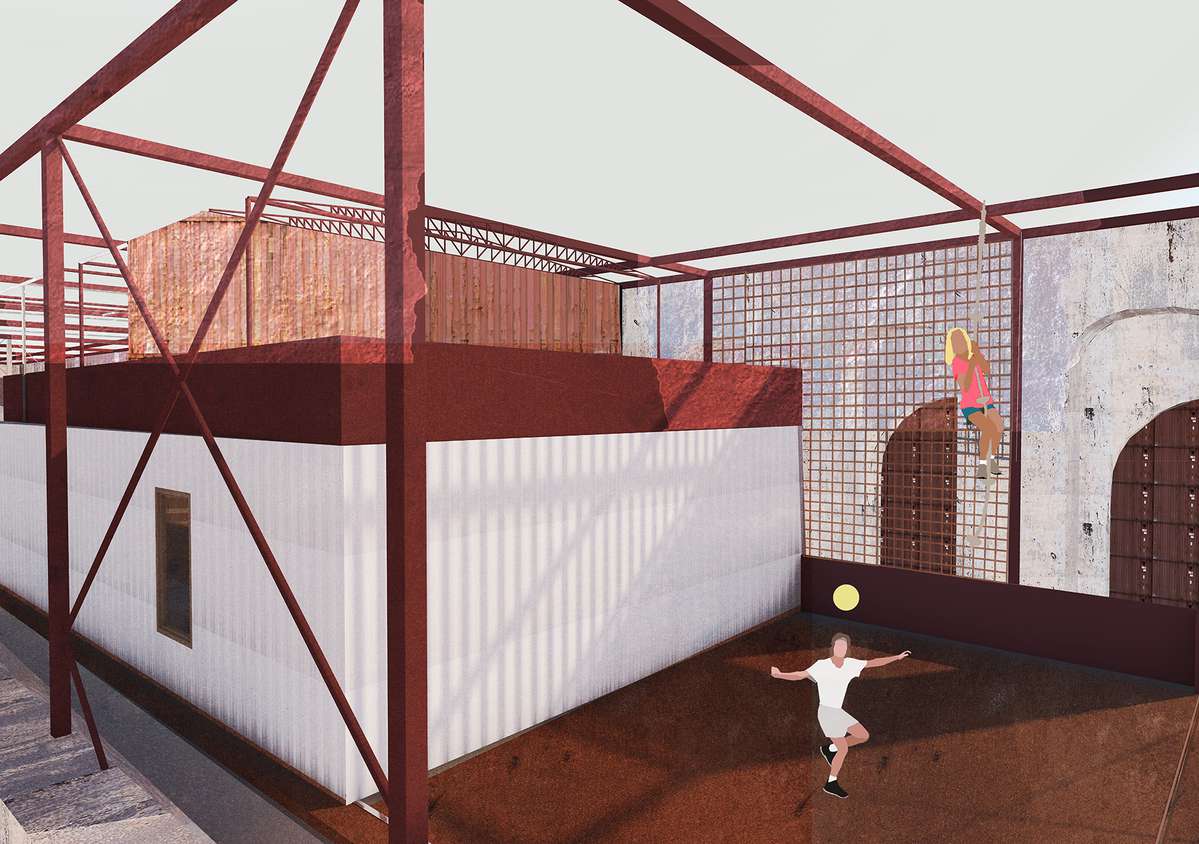
Moment of opportunity - the Port of Lisbon is now relocating, opening the debates on what to do with all the container remains; can reusing parts of them be a way to build systemic cooperation?...
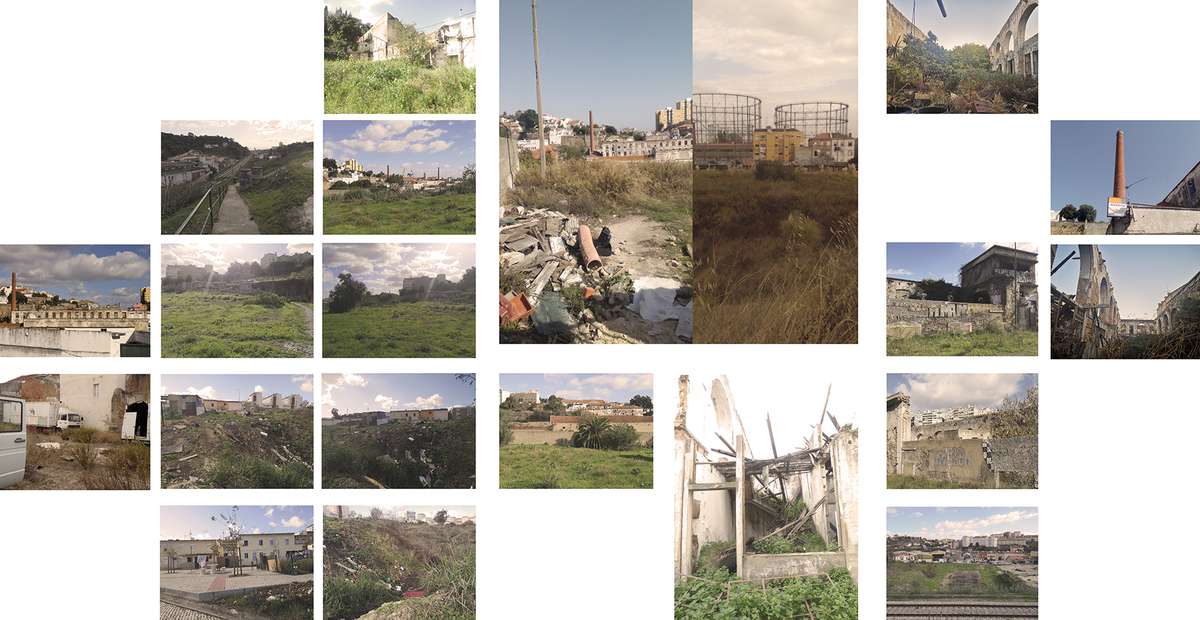
Vague memories – urban voids in Eastern Lisbon are not only symbols of past lives, but also a call to action for the future...
Vague Utopie
Vague Utopie

- Systemic changes
The land that remains from urban change - terrain vague- is an organically rich, indefinite territory, part of natural water drainage and air systems. Symbols of resistance and regeneration, urban voids connect different times - organic life cycles, city transformation and ruins, time’s physical expression.
In a context of urban regeneration of Lisbon’s Eastern part, given the momentary lack of affordable housing in the city and contemporary nomadic lifestyles with no architectural translation, an alternative dwelling experiment is proposed – hybrid temporary places for homeless, students, travelling artists, migrants, or other kinds of temporary situations which require social integration – conceptualized in one abandoned factory in ruins and its empty surroundings. An experimentation with time that will last until the natural flow creates a need of space for something else. Transience of urban empty places opens infinite possibilities of experimentation on building the city itself.
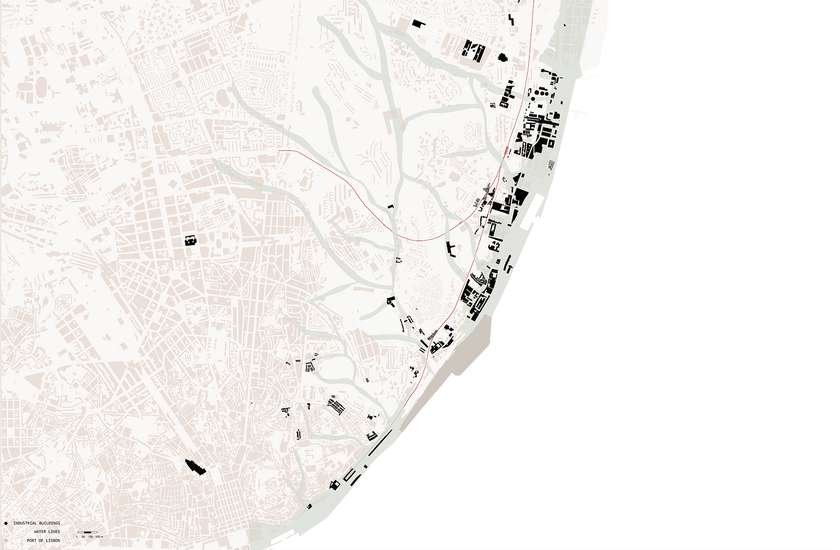
Mapping the relation between water drainage lines and industrial heritage in Lisbon – post-industrial abandonment left beautiful empty buildings and often created spaces of natural/built conflict.
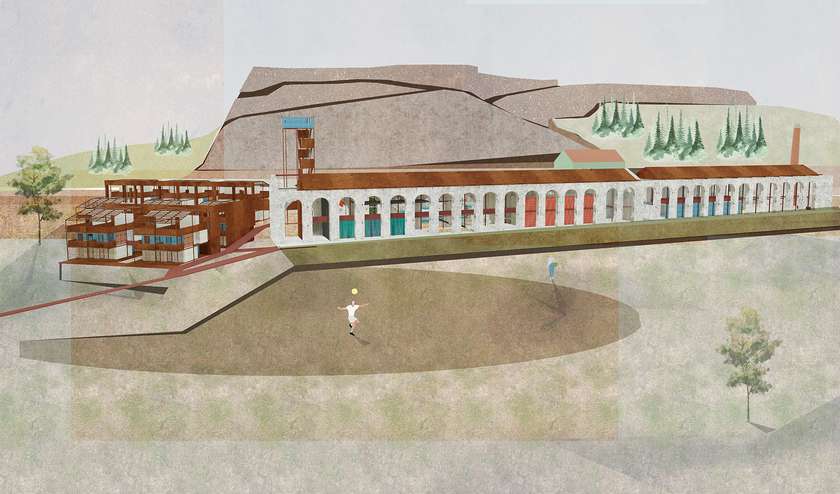
An utopian ideal of universal balance – acting upon the ruins without altering them, building something you can unbuild, leaving room for nature to grow by itself – sets the premises to intervene on empty urban land.
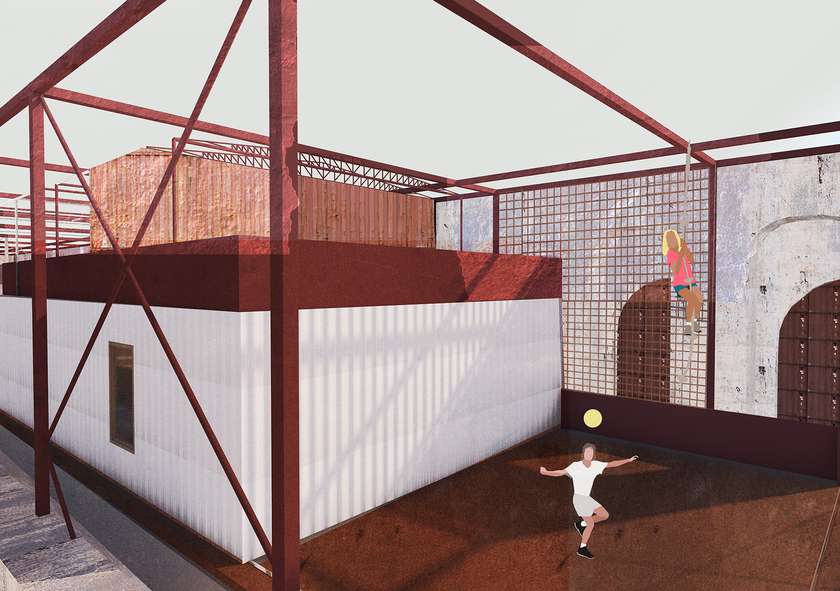
Moment of opportunity - the Port of Lisbon is now relocating, opening the debates on what to do with all the container remains; can reusing parts of them be a way to build systemic cooperation?...
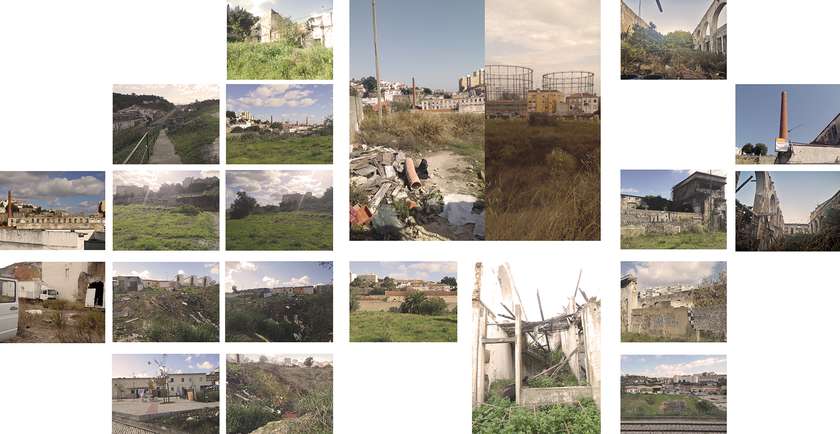
Vague memories – urban voids in Eastern Lisbon are not only symbols of past lives, but also a call to action for the future...